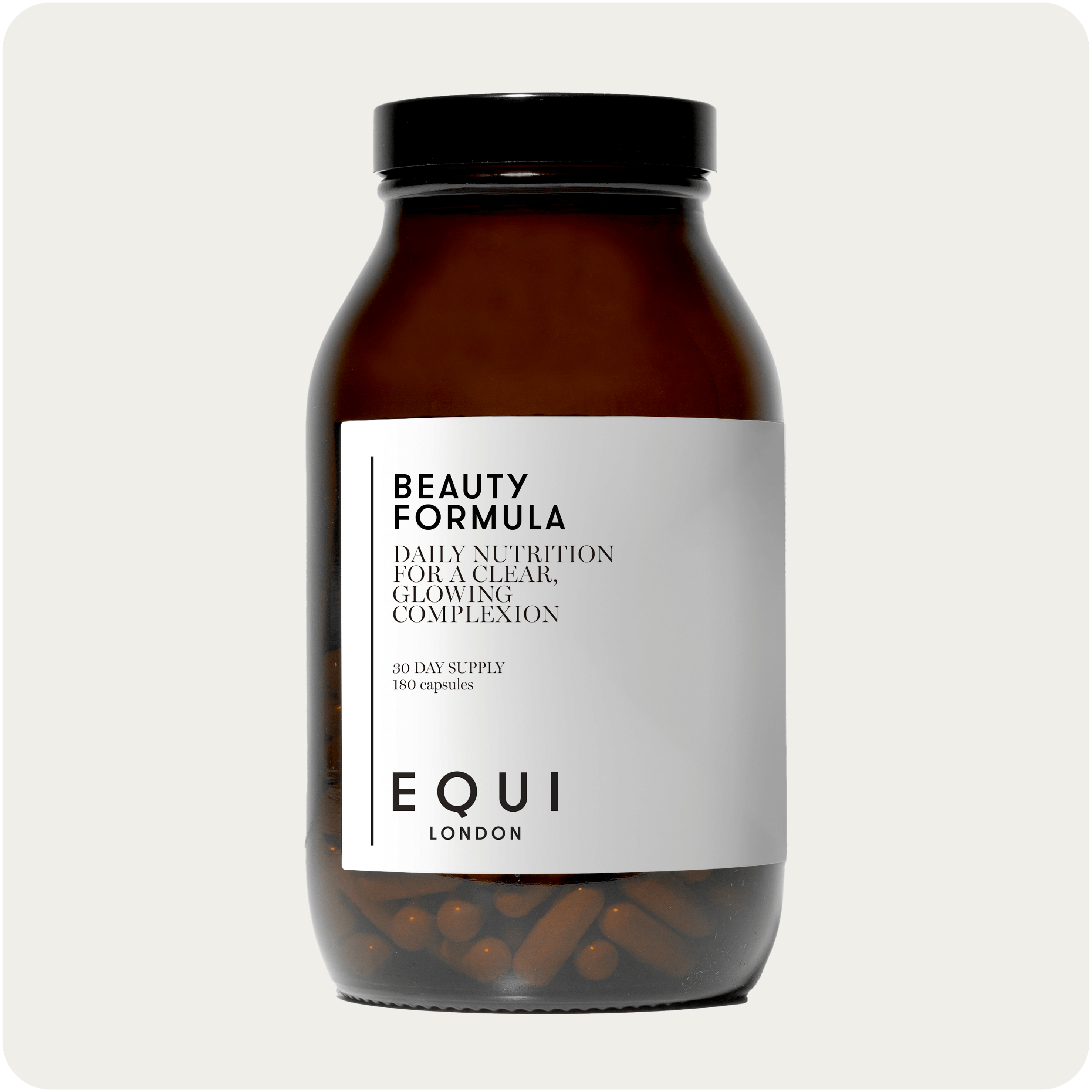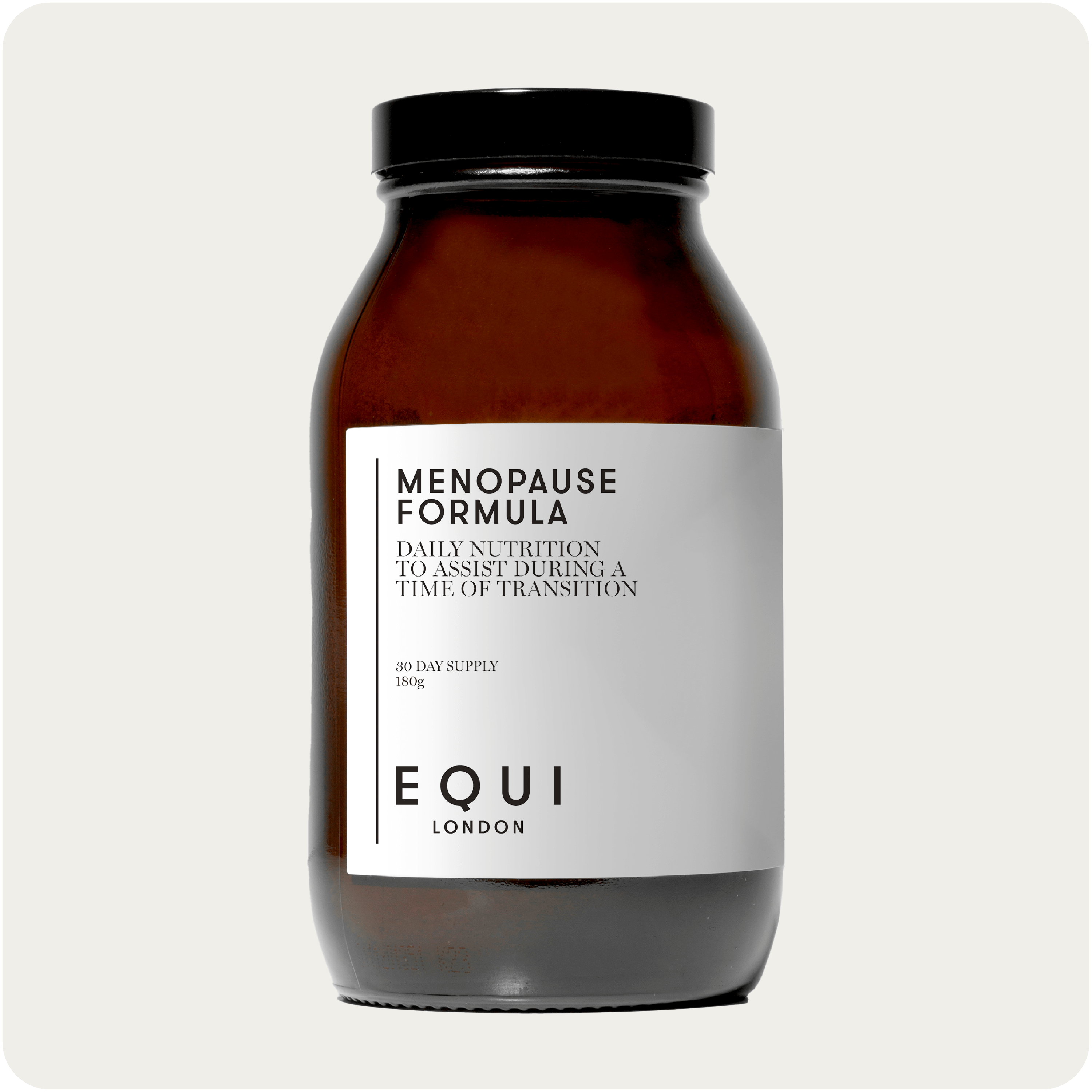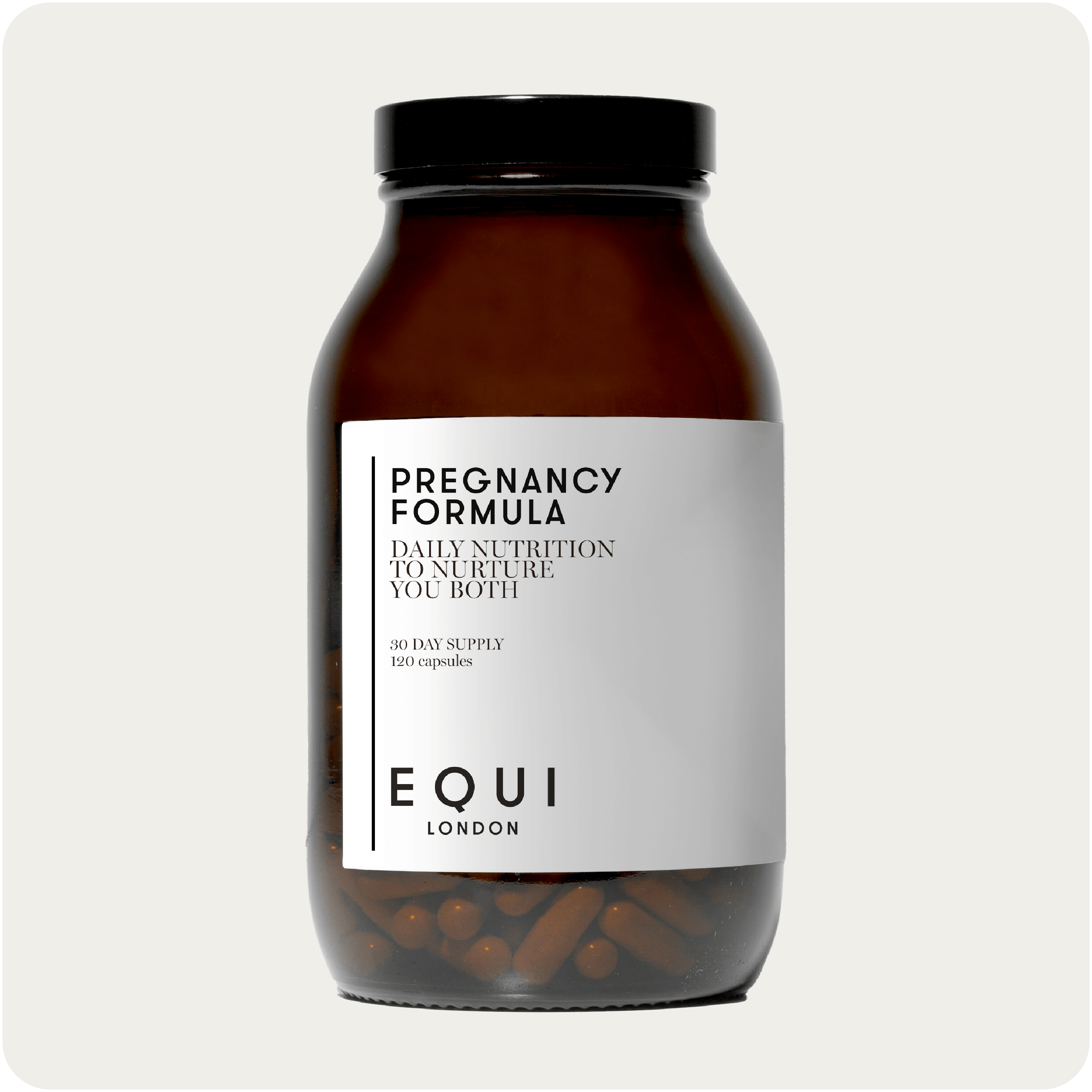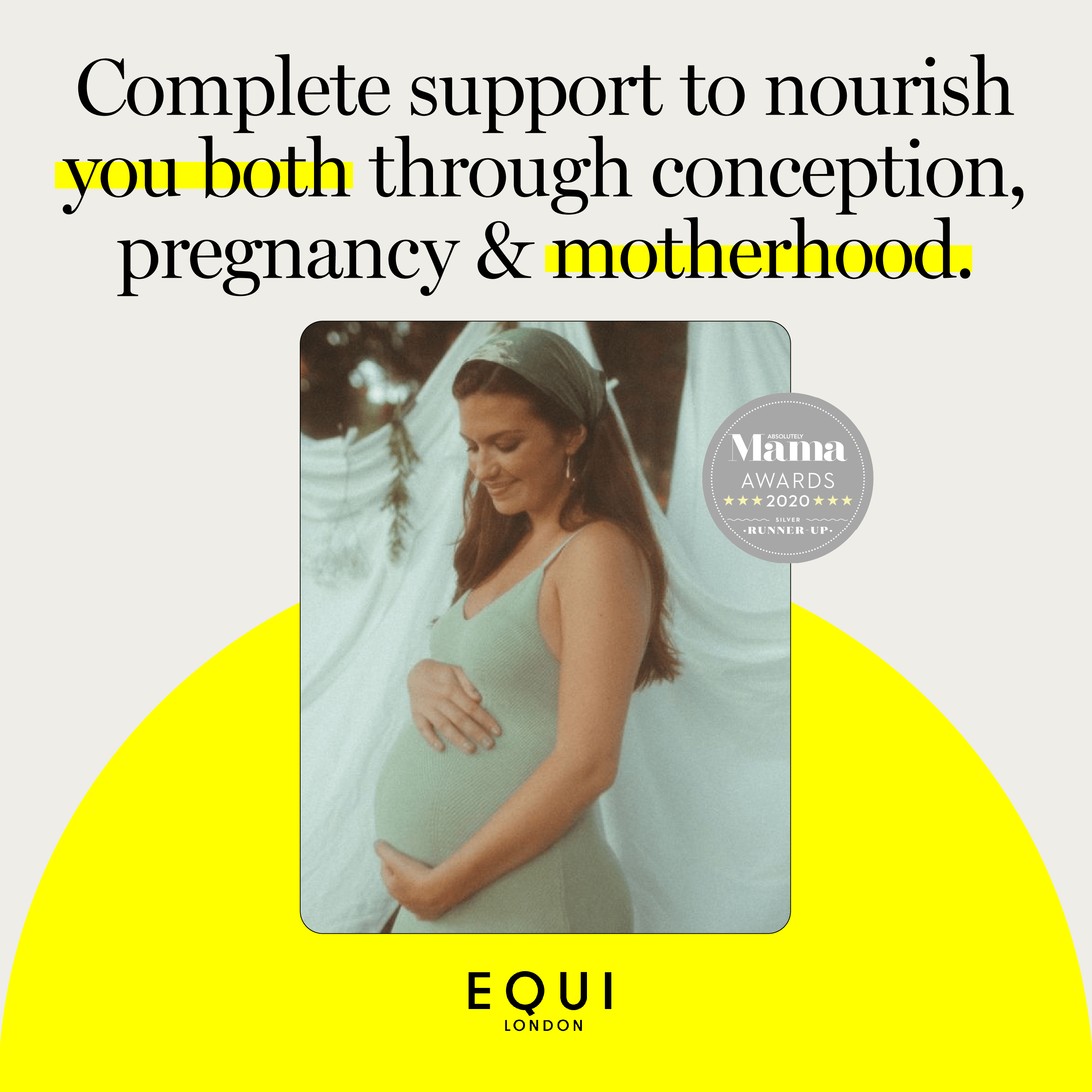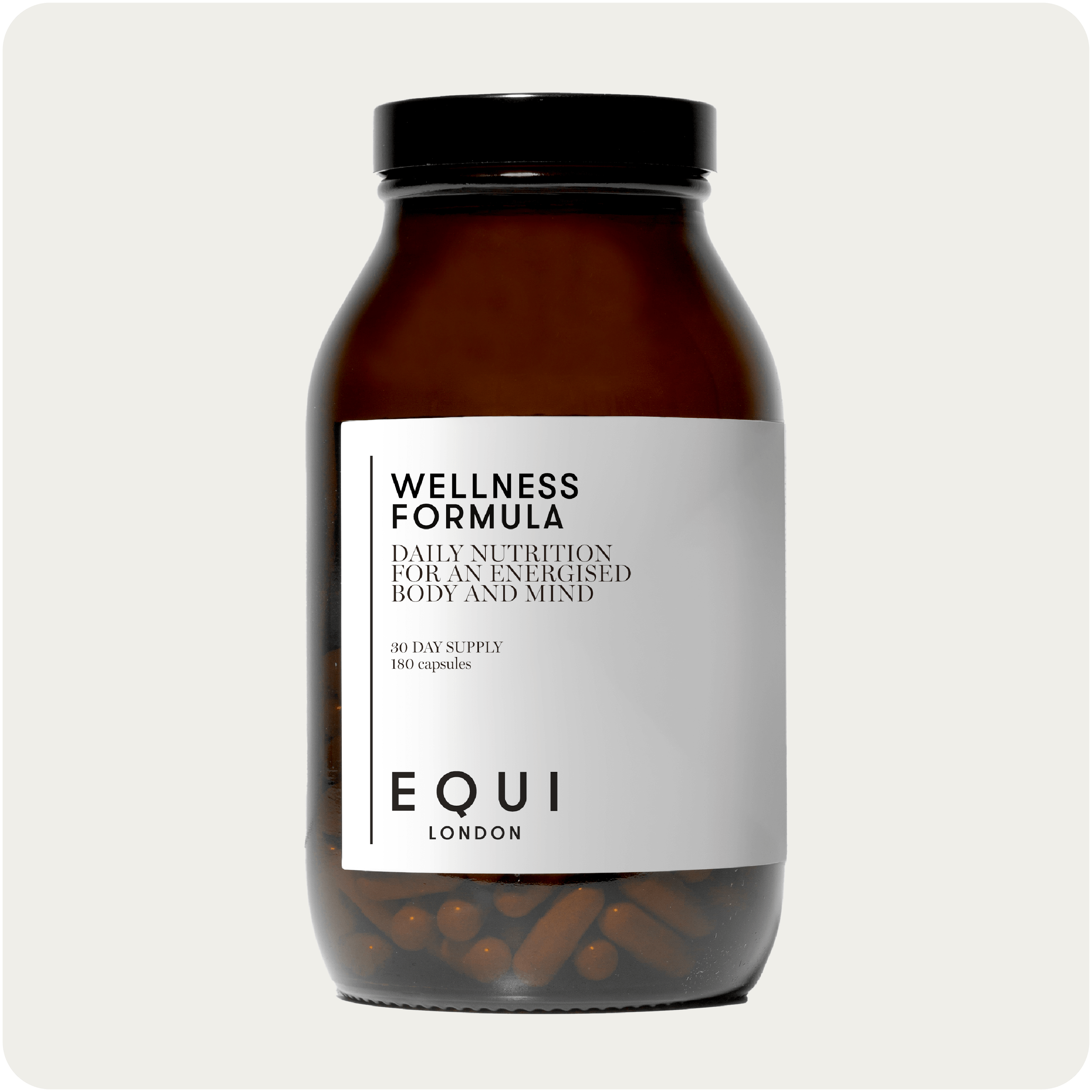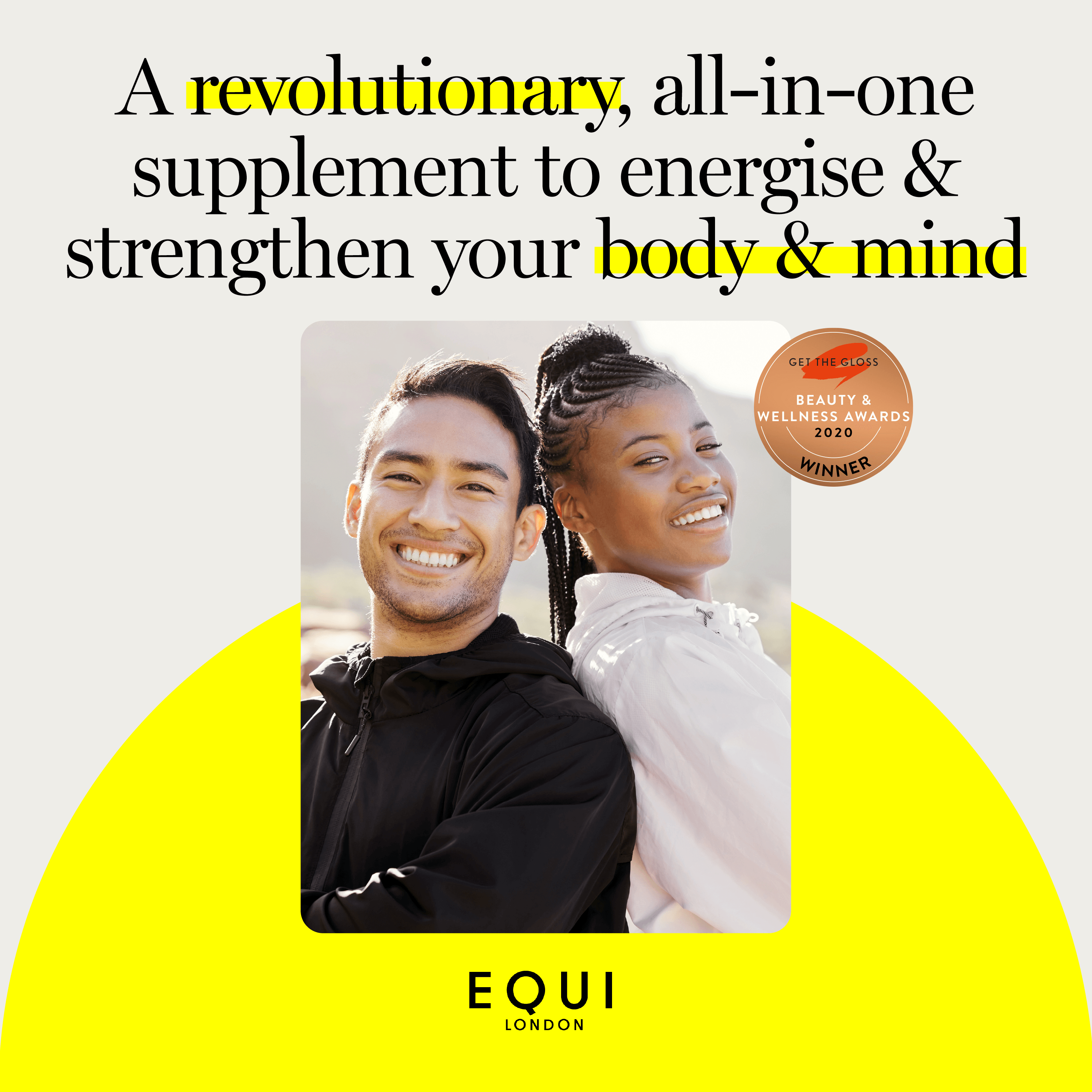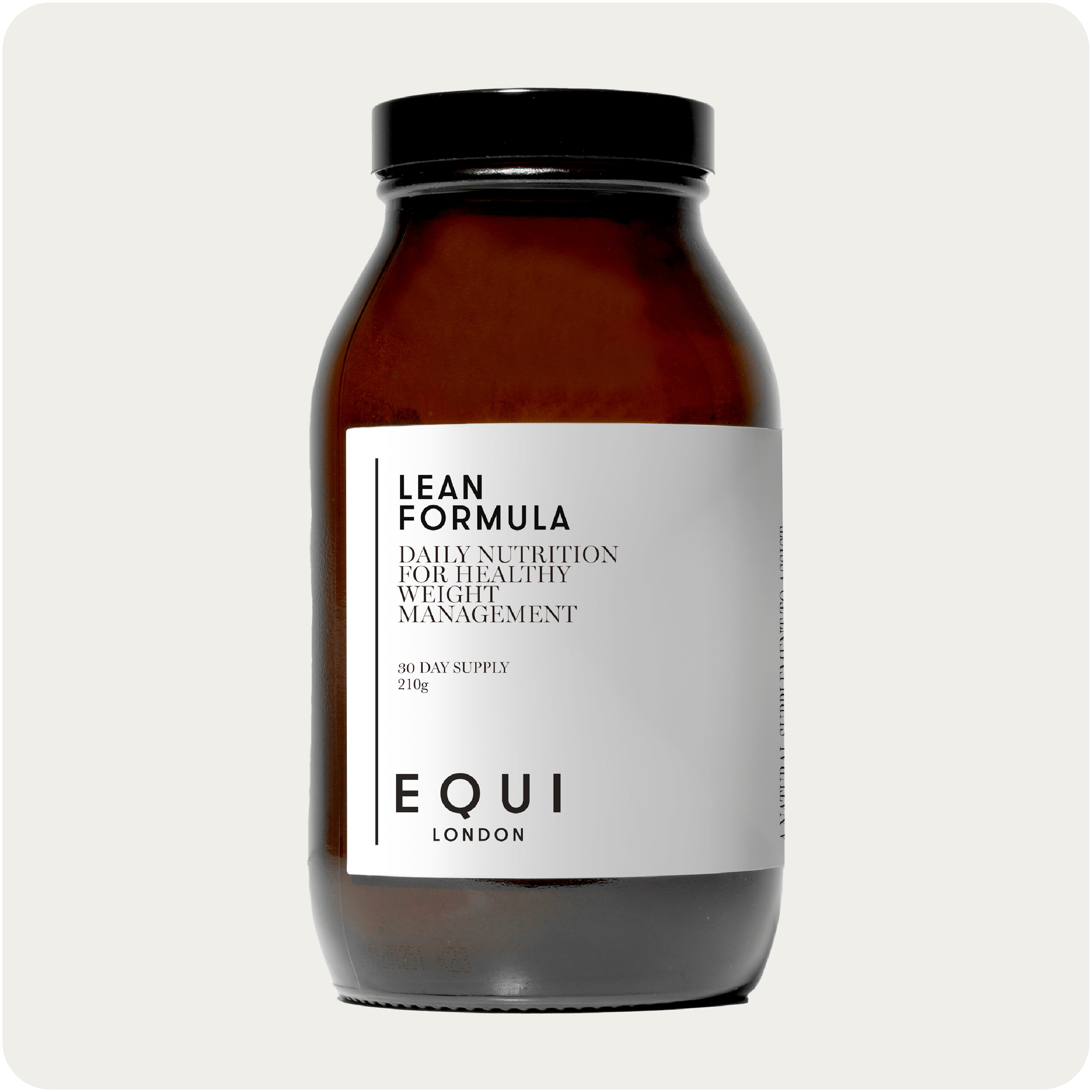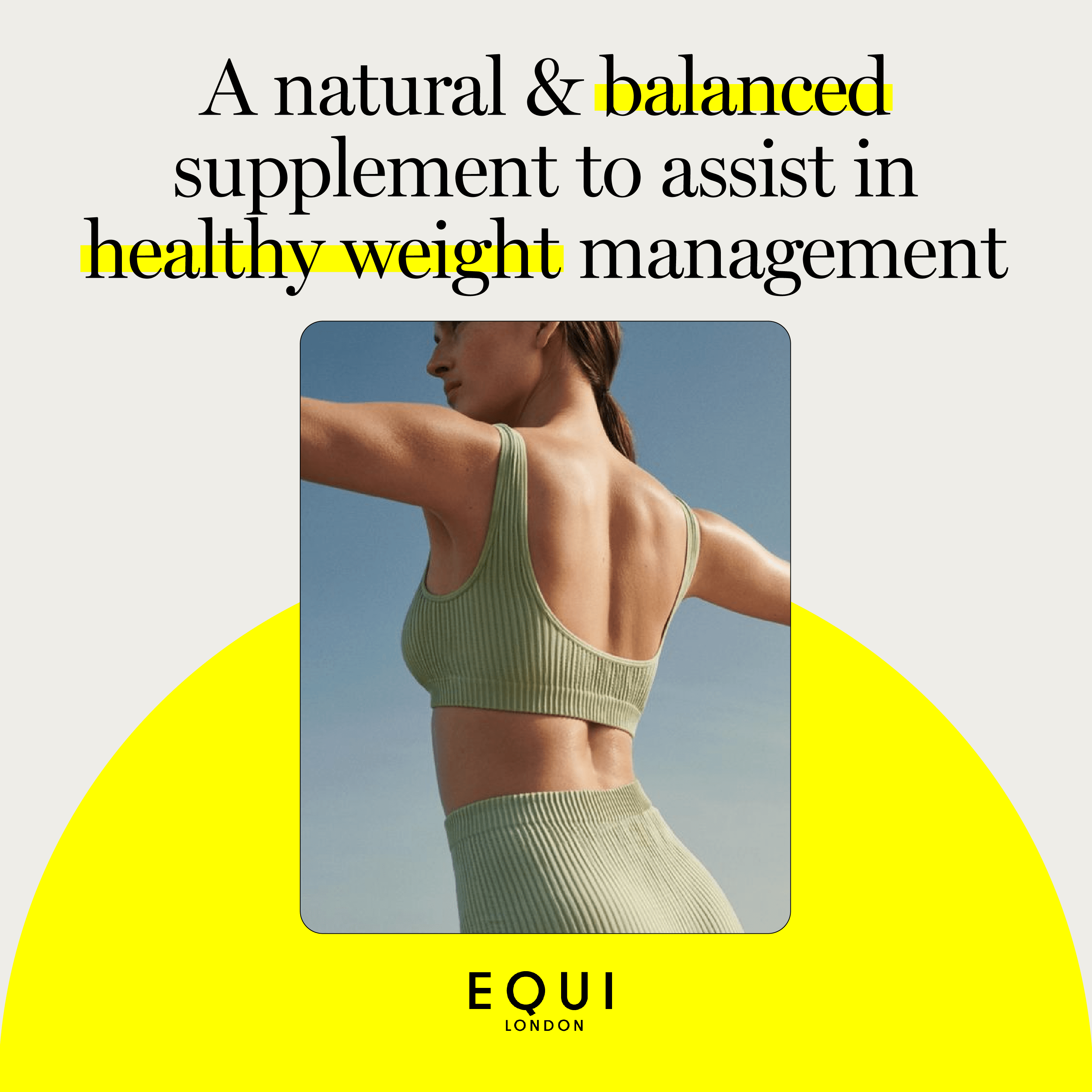
So often, the menopause is portrayed as a time of loss or deficiency, but we're here to flip the script and reveal the silver linings of this life stage. Yes, menopause does bring about significant changes - hormonal shifts, the end of menstrual cycles, and sometimes, symptoms that can challenge our day-to-day life. But it's also a liberating phase where we bid farewell to period woes, PMS, and fertility concerns.
In today’s blog, we'll uncover the hidden gems of menopause and equip you with the tools you need to navigate this transition with grace and vigour. We'll delve into how our specifically designed Menopause Formula can ease the transition, the long-term health considerations during this stage, the biological intricacies of menopause, with a practical lifestyle guide to empower you through menopause.
So, if you're in the throes of menopause, approaching this phase, or even if you're years away but want to understand what the future holds, this blog is for you. Here's to embracing menopause with open arms and celebrating the powerhouse of wisdom and experience you are. Welcome to the journey of truly understanding and appreciating your changing body - join us in viewing this natural life transition through a different lens, one that celebrates the strength, resilience, and beauty of mature womanhood.
Understanding What Happens in Menopause
Menopause is an awe-inspiring testament to the complex beauty of the female body. The changes it ushers in, however, aren't always easy to understand. So, let's delve into the biology behind menopause to better comprehend this extraordinary life stage. Menopause marks the natural end of a woman's reproductive cycle and typically occurs between the ages of 45-55. It's officially diagnosed after a woman has gone 12 months without a menstrual period. This transition is not abrupt but is preceded by a phase known as perimenopause, which can last for up to 10 years and is characterised by fluctuating hormone levels, primarily of oestrogen and progesterone (1). Read our recent blog all about the signs and symptoms of peri-menopause.
The decline in oestrogen levels is a primary player in the menopause arena. Oestrogen is a key hormone in women's reproductive health and influences bone health, mood, skin integrity, and heart health, among other things (2). This decrease in oestrogen is why some women experience symptoms like hot flashes, mood swings, and vaginal dryness, which can continue from the peri-menopausal years into the menopause (3). It's also important to note that menopause affects other aspects of health, including cardiovascular health, bone density, and mental health, which become more prominent in later years. The decline in oestrogen levels can lead to an increased risk of osteoporosis and heart disease, and some women may experience increased anxiety or depressive symptoms (4,5). Though these changes might sound intimidating, they're a natural part of life. Knowing what to expect can better equip us to navigate this journey confidently and proactively.
Beyond Hot Flashes - Long-term Health Considerations in Menopause
Once we reach the menopause stage, there needs to be a shift in health focus that's necessary to maintain optimal wellbeing. Key areas of concern during this period include bone health, cardiovascular health, mental health, and overall physical strength.
Osteoporosis
One of the most prominent health issues post-menopause is the risk of osteoporosis. The relationship between menopause and osteoporosis can be traced back to the role of oestrogen in bone metabolism. Oestrogen is crucial for the absorption of calcium and the production of bone-building cells known as osteoblasts. During our reproductive years, the hormone keeps bone resorption (breakdown) in check. However, the decline in oestrogen levels affects the balance between bone breakdown and formation, potentially leading to a loss in bone density. This imbalance tends to accelerate in the first five years after the onset of menopause, leading to a rapid reduction in bone density. The consequences of osteoporosis are far-reaching. Fractures are a significant concern, particularly in the hip, spine, and wrist. However, it’s not all doom and gloom - according to the studies, regular calcium and Vitamin D intake through diet or supplements, is essential to maintain strong bones (6). What’s more, weight-bearing and resistance exercises can also stimulate bone formation, helping to offset the loss of bone density. Bone density testing is recommended for all women over the age of 65, or sooner for those with additional risk factors, allowing for early detection and management of the disease (7). Whilst the loss of bone density and the resulting risk of osteoporosis is a significant health issue for post-menopausal women, recognising these risks and taking early action can help maintain bone health and overall well-being during this life transition and beyond.
Cardiovascular Health
Cardiovascular health is another key concern. The risk of developing cardiovascular diseases (CVD), notably heart disease and stroke, markedly increases in women post-menopause. Oestrogen plays a pivotal role in cardiovascular health by maintaining the flexibility of arterial walls, reducing inflammation, and influencing lipid metabolism. The drop in oestrogen during menopause can negatively affect these processes, leading to increased cardiovascular risk (8). One pivotal aspect is the alteration in lipid profiles. Post-menopausal women often experience increases in low-density lipoprotein (LDL), often referred to as 'bad cholesterol', and reductions in high-density lipoprotein (HDL), known as 'good cholesterol'. These changes can contribute to the development of atherosclerosis, a condition characterised by hardening and narrowing of the arteries that can lead to heart disease and stroke (9). Hypertension, another significant risk factor for CVD, also becomes more prevalent after menopause. The decline in oestrogen, coupled with age-related changes, contributes to an increase in blood pressure, further exacerbating the risk of CVD (10). Despite the inherent risks, menopause should not be viewed as a determinant of poor cardiovascular health. Many interventions can mitigate these risks, such as adopting a heart-healthy diet rich in fruits, vegetables, lean proteins, and whole grains. Also, maintaining a healthy weight by engaging in regular physical activity, and monitoring blood pressure and cholesterol levels is key. Testing levels is something your GP should be able to support with if requested. Hormone replacement therapy may also provide cardiovascular benefits for certain women, though this should be discussed with your GP or a healthcare provider given the potential risks and benefits. The increase in cardiovascular risk following menopause underscores the importance of preventive strategies and regular health check-ups.
Mental Wellbeing
Menopause is a significant transition in a woman's life, bringing not only physical but also psychological changes. In fact, it's not uncommon for women to experience mental health challenges during this period, including mood swings, anxiety, depression, and cognitive changes (11). The fluctuating hormone levels during menopause, particularly the reduction in oestrogen, play a key role in these psychological changes. Oestrogen has neuroprotective properties and is involved in regulating mood and cognition. Its decline can influence neurotransmitter systems, affect mood regulation, and cause increased vulnerability to mental health disorders (12). For instance, depression is more prevalent during the perimenopausal transition and early post-menopause. In fact, studies show that women with no history of depression can experience depressive symptoms for the first time during this period (13). Anxiety is another common issue during menopause, with symptoms ranging from generalised anxiety to panic attacks. Some women may also experience cognitive changes, such as problems with memory and concentration. Despite these challenges, it's essential to know that mental health concerns during menopause can be managed effectively. A combination of lifestyle modifications, psychological therapy, medication, and, in some cases, hormone replacement therapy can be beneficial. It's crucial for us women to openly discuss these issues. If you are struggling with your mental health, be sure to reach out to a GP or healthcare providers to seek support.
Finding Balance - The Role of Menopause Formula
Menopause Formula is not just for women navigating the transition to menopause, it also offers significant benefits to post-menopausal women. Even after the cessation of periods, the hormonal adjustments in the body continue, often leading to symptoms such as hot flashes, night sweats, mood changes, and a decline in bone density, among others. Menopause Formula contains key nutrients, vitamins, and minerals that can help manage these issues. It offers a comprehensive approach, targeting common symptoms, which still occur during the menopause, helping to balance hormones, and boosting overall health and well-being. Menopause Formula also contains phytoestrogens, like those from flaxseed extract, safe extract and dong quai. These plant compounds mimic oestrogen in the body, helping support declining levels. In addition, Menopause Formula contains B-vitamins, vitamin D, magnesium, and calcium, which all promote bone health, a key concern during menopause due to declining oestrogen levels. One study found calcium and vitamin D supplementation significantly improved bone mineral density in postmenopausal women. For mental well-being, the inclusion of adaptogenic herbs like KSM66®Ashwagandha offer support. It helps the body respond to stress and has been linked to improved mood and cognitive function. Menopause Formula provides an integrative approach to managing menopause, targeting symptoms, supporting hormone balance, and promoting overall health. It's important to remember that a balanced nutrient dense diet that contains lots of colourful vegetables and fruits, wholegrains, lean protein, and healthy fats is key to support optimal health and wellbeing during the menopause and beyond. Menopause Formula works in synergy with a balanced diet, improving digestive function and nutrient absorption and maintaining gut health, helping you to stay on top of any health concerns.
Menopause Formula is an expertly formulated supplement that blends premium, bio-available nutrients specifically selected to boost the female body at a time when it is most in need of balance. Read all about Menopause Formula Ingredients here. Menopause Oil is a daily, nutrient-rich ingestible oil blend specifically formulated for the needs of women in their forties and beyond. Contains 6 nutrient-rich, organic, super-pure oils, individually selected for their exceptional anti-inflammatory properties and ability to combat dryness throughout the body.
It's essential to consult a healthcare provider before starting any new supplement regimen to ensure it aligns with your specific health needs.
Embracing the New Normal & The Positives of Menopause
Menopause, a natural life stage experienced by every woman, is often viewed from a negative perspective, with its myriad symptoms and hormonal changes. However, this transition also offers several benefits, marking the end of menstruation, premenstrual syndrome (PMS), and fertility concerns. Let’s all start to view menopause in a positive light, to help us women embrace this change and improve our overall well-being.
The cessation of menstruation is one of the most significant changes that accompany menopause. The freedom from monthly periods eliminates concerns about heavy or irregular bleeding, mood swings, and discomfort, which can provide a huge sense of relief! In fact, studies back this up - many women report an improvement in their quality of life following the cessation of menstruation due to the absence of menstrual symptoms and the inconvenience it brings (14). Simultaneously, the end of menstruation also signifies the end of PMS, a collection of symptoms including mood swings, bloating, breast tenderness, and irritability that precede the menstrual cycle. According to research, as many as 75% of menstruating women experience some form of PMS (15). The end of these monthly disruptions can, therefore, lead to more stable physical and emotional health and we are inclined to agree!
Menopause also brings an end to the childbearing years, and with it, any related anxieties, or uncertainties. Women may find this particularly liberating, allowing them to focus more on themselves and their health, without the worry of fertility struggles, potential pregnancy or contraception methods. Studies support this too, indicating that many postmenopausal women experienced a renewed sense of self and independence post-menopause (16). However, it's still important to remember that while menopause signifies an end to certain aspects of reproductive health, it doesn't denote an end to sexual health or pleasure. As a study indicates, many women maintain or even experience an improvement in sexual satisfaction during post-menopause (17), which is reassuring to hear. Finally, menopause presents an opportunity for personal growth and self-care. As life expectancy increases, women can expect to live a third of their lives post-menopause. This transition can act as a prompt to prioritise self-care, nutrition, exercise, mental health, and chronic disease prevention.
A Guide to Thriving in Your Post-Menstrual Years
Menopause, a natural transition in a woman's life, may present with physical and emotional challenges. However, with proactive steps, we can significantly influence our menopause journey. Nutrition, exercise, and mental health strategies are three actionable steps that can be taken to manage this stage of life effectively.
Nutrition
A balanced diet plays a crucial role in managing menopause symptoms and preventing long-term health risks associated with post-menopause, such as cardiovascular diseases and osteoporosis. A study emphasised the importance of consuming a whole foods diet such as the Mediterranean Diet, which is rich in fruits, vegetables, healthy fats like oily fish, lean proteins, and whole grains to manage weight and overall health during menopause (18). Additionally, foods high in phytoestrogens, like flaxseeds and soy, may alleviate hot flashes and other symptoms due to their oestrogen-like properties. Worried about consuming soy? You don’t have to be – studies support its consumption during the menopause. Read our recent blog all about phytoestrogens, soy, and HRT here. Finally, we can’t mention enough that a regular intake of calcium and vitamin D through foods and supplementation is also crucial to prevent bone loss. Menopause Formula contains 95mg of calcium per daily dose to help top up your intake. It’s important to note, high levels of calcium supplementation can be detrimental, which is why we haven’t added too much – obtaining more through foods is recommended. Good sources of calcium include the obvious ones such as dairy as well as lesser-known sources including tahini (sesame seed paste) and small tinned fish such as sardines and anchovies that contain soft bones which can be consumed. Whilst you can obtain vitamin D from some foods, like fatty fish, the best source is via sun exposure on the skin. Obtaining 30 minutes of sun exposure between the hours of 10am-3pm twice a week can help maintain levels. On top of this, it’s important to supplement vitamin D, which is why we have included the NHS’ recommended dosage of 400IU in Menopause Formula. Alongside some of these key nutrients, there are a plethora of other vitamins, minerals, adaptogens, and botanicals that can help support you during the menopause and beyond, which we have included in our Menopause Formula. To find out more about Menopause Formula ingredients, read our recent blog here.
Exercise
Physical activity is a powerful tool for managing menopause symptoms and maintaining overall health. Avoiding a sedentary lifestyle with regular exercise helps manage weight, improves mood, aids sleep, and strengthens bones (19). The guidelines recommended by the NHS suggest that adults should do at least 150 minutes of moderate-intensity activity a week or 75 minutes of vigorous-intensity activity. Strength exercises play a crucial role in maintaining overall health post-menopause. They can help maintain muscle mass, improve the metabolism, support bone health, and enhance mood and overall quality of life. Therefore, a routine involving resistance exercises such as weight training or body weight workouts including Pilates and yoga can be an excellent addition to your post-menopausal workout routine. Also, don’t overlook activities such as gardening, which is a good form of exercise, whilst also being mindful and therefore supporting mental health. In addition, take any opportunity to walk or cycle instead of driving for shorter journeys. Getting out into nature can be hugely beneficial for our mental health during the menopause.
Mental Health Strategies
As we’ve touched on already, menopause can bring about emotional changes and increased risk of anxiety and depression. Engaging in mindfulness practices, such as meditation and yoga, can enhance mood and mental well-being. In fact, one study found that mindfulness might help decrease menopausal symptoms and increase quality of life (20). Getting outdoors and engaging with nature is a fantastic way to alleviate stress and anxiety too. A study discovered that exposure to green spaces helps lower levels of stress hormones, reduce blood pressure, and improve mood (21). The positive effects of nature on mental health can't be overstated, especially during menopause, when fluctuating hormone levels can lead to mood swings and anxiety. Moreover, open communication and expression about menopausal experiences can offer therapeutic benefits. Sharing your experiences not only fosters a sense of understanding and community but also can help you gain new perspectives and strategies for managing your symptoms. Of course, if needed, seek advice from a mental health expert such as a counsellor. Never underestimate the power of a good conversation or a walk in the park. These practices, in combination with the right nutrition and exercise, can be a potent weapon in your arsenal against menopause's mental health challenges.
At Equi, we hold a passionate belief in empowering women during the menopause transition, a pivotal and natural stage of life. We aspire to challenge societal taboos and bring the discussion about menopause into the light. Through evidence-based information, proactive nutrition, and wellness strategies, we aim to guide women to understand, embrace, and optimise this transformative period. We firmly believe in championing a positive approach to menopause, allowing women to not just endure this transition but truly thrive. Together, let's redefine menopause, focusing on the opportunity for growth, reinvention, and the commencement of an invigorating new chapter.
If you are affected by any of the topics or health considerations mentioned in this blog, it’s important to seek professional help. Discuss any concerns you many have with your GP or healthcare provider and remember you can obtain further support from a nutritionist or dietician, a physical trainer, or a mental health professional, who can provide personalised advice and strategies for managing menopause effectively. Remember, menopause is not a medical condition but a natural life stage. By taking proactive steps, us women can ensure a healthier and more positive menopause journey.
References
-
Harvard Medical School. (2019) 'Menopause: Overview', In: Harvard Women's Health Watch.
-
Davis, S.R., et al. (2015) 'Understanding weight gain at menopause', Climacteric, 15(5), pp. 419-429.
-
Santoro, N., et al. (2016) 'Menopausal Symptoms and Their Management', Endocrinology and metabolism clinics of North America, 45(3), pp. 573-591.
-
Muka, T., et al. (2016) 'Association of Vasomotor and Other Menopausal Symptoms with Risk of Cardiovascular Disease: A Systematic Review and Meta-Analysis', PloS one, 11(6), e0157417.
-
Collaborative Group on Epidemiological Studies of Ovarian Cancer. (2015) 'Menopausal hormone use and ovarian cancer risk: individual participant meta-analysis of 52 epidemiological studies', Lancet, 385(9980), pp.1835-1842.
-
Weaver, C.M., et al. (2016) 'Calcium plus vitamin D supplementation and risk of fractures: an updated meta-analysis from the National Osteoporosis Foundation', Osteoporosis international, 27(1), pp.367-376.
-
Cosman, F., et al. (2014) 'Clinician’s guide to prevention and treatment of osteoporosis', Osteoporosis International, 25(10), pp.2359-2381.
-
El Khoudary, S. R., et al. (2012). 'HDL and the menopausal transition.' Current Vascular Pharmacology, 10(6), pp. 659-673.
-
Matthews, K. A., et al. (2014). 'Menopause and risk factors for coronary heart disease.' The New England Journal of Medicine, 371(14), pp. 1351-1352.
-
Bray, A., & Hebert, K. (2020). 'Hypertension and the menopausal woman: epidemiology, risk, and clinical implications.' Journal of Women's Health, 29(3), pp. 390-397.
-
Maki, P. M., et al. (2018). 'Menopause and brain: An update on menopause-related cognitive decline and dementia'. The North American Menopause Society, 25(8), pp. 831-842.
-
Sherwin, B. B. (2012). 'Oestrogen and cognitive functioning in women: Lessons we have learned.' Behavioural Brain Research, 227(2), pp. 617-620.
-
Bromberger, J. T., et al. (2015). 'Depression during and after the perimenopause: Impact of hormones, genetics, and environmental determinants of disease.' Obstetrics and Gynecology Clinics, 42(4), pp. 591-603.
-
Avis, N.E., Crawford, S.L., Greendale, G., Bromberger, J.T., Everson-Rose, S.A., Gold, E.B., Hess, R., Joffe, H., Kravitz, H.M., Tepper, P.G., Thurston, R.C. (2012). Duration of Menopausal Vasomotor Symptoms Over the Menopause Transition. Journal of Women's Health, 21(4), pp. 347-354.
-
Dickerson, L.M., Mazyck, P.J., Hunter, M.H. (2013). Premenstrual Syndrome. American Journal of Obstetrics and Gynecology, 186(5), S1-S15.
-
Żeleznik, A., Krajewska, J., Wdowiak, A., Cyganek, A., Skrzypulec-Plinta, V. (2017). Menopause. Women's Attitude and Perception. Menopause Review, 16(1), pp. 1-7.
-
Avis, N.E., Colvin, A., Bromberger, J.T., Hess, R., Matthews, K.A., Ory, M., Schocken, M. (2018). Change in Sexual Functioning over the Menopausal Transition: Results from the Study of Women's Health Across the Nation (SWAN). Archives of Sexual Behavior, 47(3), pp. 861-874.
-
Silva TR, Oppermann K, Reis FM, Spritzer PM. (2021). Nutrition in Menopausal Women: A Narrative Review. Nutrients. 13 (7), p. 2149.
-
Sternfeld B, Dugan S. (2011). Physical activity and health during the menopausal transition. Obstet Gynecol Clin North Am, 38 (3), pp. 537-66.
-
Sood R, Kuhle CL, Kapoor E, Thielen JM, Frohmader KS, Mara KC, Faubion SS. (2019). Association of mindfulness and stress with menopausal symptoms in midlife women. Climacteric. 22 (4), pp. 377-382.
-
University of Minnesota. (2017). 'Exposure to green spaces and mental health: a study on the benefits of nature', University of Minnesota, Twin Cities.
